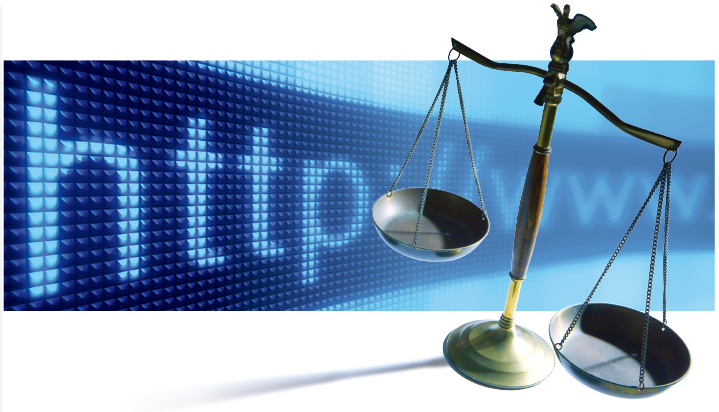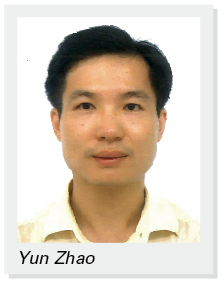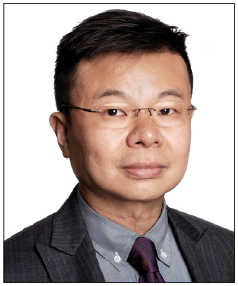
 Published in Asian-mena Counsel: Dispute Resolution Special Report 2019
Published in Asian-mena Counsel: Dispute Resolution Special Report 2019
By Yun Zhao, The University of Hong Kong
 In view of the rapid development of e-commerce and the skyrocketing number of online disputes, China decided on June 26, 2017 to set up an internet court, with the aim to take advantages of high technologies to facilitate the litigation process. The City of Hangzhou, the provincial capital of Zhejiang Province, being home to many high-tech companies, in particular Alibaba, is naturally the ideal location for the first internet court in China. Hangzhou Internet Court was formally established on August 18, 2017, with the IT support from Gongdao Network Technology. The litigation platform is registered with the domain name http://www.netcourt.gov.cn.
In view of the rapid development of e-commerce and the skyrocketing number of online disputes, China decided on June 26, 2017 to set up an internet court, with the aim to take advantages of high technologies to facilitate the litigation process. The City of Hangzhou, the provincial capital of Zhejiang Province, being home to many high-tech companies, in particular Alibaba, is naturally the ideal location for the first internet court in China. Hangzhou Internet Court was formally established on August 18, 2017, with the IT support from Gongdao Network Technology. The litigation platform is registered with the domain name http://www.netcourt.gov.cn.
According to the notice issued by the Supreme People’s Court on The Proposal of the Establishment of Hangzhou Internet Court, Hangzhou Internet Court has centralised jurisdiction over the internet-involved civil and administrative cases of the first instance originally under the jurisdiction of the Basic People’s Courts in the city of Hangzhou.
The litigation process shall be operated online, from initiating lawsuits until the release of judgments. The disputing parties may bring the suit to the internet court by registering with their phone numbers. The online system will have access to the user’s identity, online transaction records and other relevant personal data. Once the case is accepted, the system will notify the other party who may send in a response in the online platform. The hearing will be conducted online through a video-chat system. It is noted that the trial process is similar to the video-chat function on China’s social networking app WeChat. The application of online facilities led to significant reduction of the time and costs for the court trial — the disputing parties can also choose to pay relevant fees through e-wallets including Alipay.
Electronic evidence and electronic signatures are admitted in the internet court. It is noted that blockchain technology has already been used in the trial process. The Supreme People’s Court released a judicial interpretation by providing that the internet court can rely on evidence provided by the parties that can be authenticated by electronic signatures, time stamps, hash value verification, blockchain and other tamper-proof verification methods.
The same as in other traditional litigation processes, mediation is also included in this online process. The Trial Procedure of the Litigation of Hangzhou Internet Court provides that: “The Litigation Platform sets up the process of mediation before litigation….The mediation usually lasts 15 calendar days, and can be appropriately postponed with the consent of both parties….If two parties cannot reach a settlement in the mediation period, the case will enter into the stage of the case-filing for approval and will be submitted to the case-filing judge for review….The parties, who apply for consultation, evaluation, mediation and arbitration instead of litigation, can input the case into the Online Diversified Dispute Resolution Platform, and then resolve the dispute online.” A pre-trial mediation will be arranged following the file of a lawsuit; mediation can be conducted through the internet, telephone or videoconference.
The initiative to set up the first internet court was a great success. Within one year from its establishment (from August 2017 to August 2018), the Court accepted 12,103 cases and concluded 10,626 cases; more than 88 percent of cases were filed online and all cases were heard online with the parties’ agreement; more importantly, the efficiency in the litigation process is notable, with average time of online hearings being 28 minutes and average number of days to conclude a case being 41 days. The Supreme People’s Court further released the first batch of 10 typical internet-related cases on August 16, 2018 to unify relevant standards and provide useful guidance for future internet-related cases.
Modelling after this first internet court, two other internet courts were established in Beijing on September 9, 2018 and Guangzhou on September 28, 2018 respectively. Similar to the Hangzhou Internet Court, these two courts serve as the level of basic courts within the jurisdiction of their own cities. The appeal will be dealt with by the intermediate courts or intellectual property courts (for online copyright ownership and infringement cases and domain name dispute cases) within their respective jurisdictions.
After the establishment of the other two internet courts in China in 2018, the Supreme People’s Court unified rules on court jurisdiction by issuing the Provisions on Several Issues Concerning the Trial of Cases by Internet Courts. Apart from confirming the status of the internet courts at the level of basic people’s courts, this document lists 11 types of cases under the internet courts’ jurisdiction, ie:
- Online shopping contracts through e-commerce platforms;
- Network service contracts which are both signed and performed on the internet;
- Financial loan contracts or small loan contracts which are both signed and performed on the internet;
- The ownership of the copyrights or neighbouring rights of the works published on the internet for the first time;
- Infringements upon the copyrights or neighbouring rights of the works published or disseminated online through the internet;
- Internet domain name ownership, infringements and contracts;
- Infringements upon others’ personal rights, property rights and other civil rights and interests on the internet;
- Product liability disputes by the products purchased through e-commerce platforms due to product defects;
- Internet public interest litigation cases filed by procuratorial organs;
- Administrative disputes arising from the administrative actions taken by administrative organs, such as Internet information service management, internet commodity trading, and related service management;
- Other internet civil and administrative cases the jurisdiction over which is designated by the People’s courts at higher levels.
China leads Internet litigation around the world by setting up three Internet Courts. The successful implementation proves that the wider use of high technologies in the litigation process shall improve the litigation efficiency and reduce costs, which serves as important case studies for extending the model of Internet Courts to other parts of China, and beyond.
Yun Zhao
Henry Cheng Professor in International Law
Head of Department of Law
The University of Hong Kong
![]() Click Here to read the full issue of Asian-mena Counsel: Dispute Resolution Special Report 2019.
Click Here to read the full issue of Asian-mena Counsel: Dispute Resolution Special Report 2019.
















